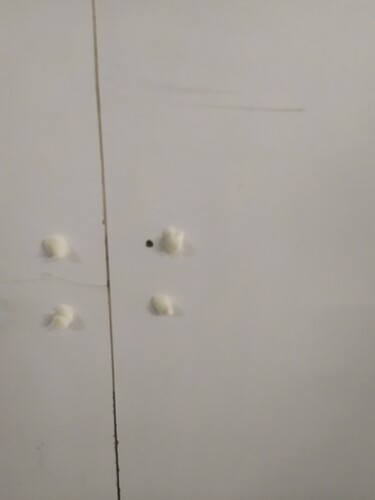Hello,
I am sorry if this should not go here. I have a silly question about cleaning. I was working in the yard and cut myself. On my way to clean my hand some (I am afraid quite a bit) blood touched a bracelet I was wearing. Since it’s made out of thread I immersed it in undiluted bleach. Is this enough to completely sanitizite it? If no, what should I do? Is boiling water any good? Should I use undiluted or diluted bleach? For how many hours should I leave it inside the bleach to kill the HBV?
Thank you,
Drew
1 Like
Hi @Drew_rous,
Bleach would definitely inactivate Hep B within a few minutes. But so can regular laundry detergent (see post here: Must I disclose my status to housemates? - #13 by ThomasTu), important to know so you don’t potentially ruin your bracelet/clothes in future.
Cheers,
Thomas
4 Likes
Hello Thomas,
Thank you for your response. I have one more similar question. I am wearing a retainer and I was wondering how can i disinifect it after dental procedures that result in bleading. I found an oral solution withn povidone iodine. Is povidone iodine effective against HBV?
Best,
Drew
1 Like
Not according to this paper (I can only access the abstract, not the actual paper, so take it with a grain of salt): Inactivation of hepatitis B virus in plasma by hospital in-use chemical disinfectants assessed by a modified HepG2 cell culture - PubMed.
The best option would be warm soapy water and then rinsing with water. I wouldn’t think a retainer is something that you share very often anyway, so I wouldn’t worry too much because you can reinfect yourself.
Thomas
2 Likes
Hello again,
Of course I am not planing on sharing my retainer with anyone.After a dental procedure my gums bleed and the retainer is full of blood. After a few days gums return to normal and I was thinking that retainer “preserves” the virus in my mouth and got me worried for things like glasses utenslis etc… Anyway, I know it’s silly thought but I a get worried for silly things sometimes.
Talking about inactivating Hep B, is alcohol rubber any good?
Best,
Drew
1 Like
Bleach and water mix and soak it for about 2-3 minutes. Wash with soap and you should be good
2 Likes
Thank you both very much!
Best,
Drew
1 Like
Hello! While I was at work I cut myself with a nail that prodruded from the wall. Since this is a place that everybody enters I was wondering on how to clean it.
I was thinking of putting some undiluted bleach on a paper tissue and cover the nail with it. Would that be effective in deactivating the virus? How long should the nail stay covered in the paper tissue to be safe?
On a similar note how lobg can hbv durvive outside the body. If I did not put anything to clean it how manybdays in room temperature would the virus survive and be infectious?
Update: this is a photo of what I did. I put some paper tissue on the nails that i soaked in bleach and left it there for 30 min. Is it safe now? Will that effectively kill hbv?
Thank you!
1 Like
Dear Anonymous13,
I think that would definitely kill HBV. As mentioned in these other threads (Constant fear of transmitting the virus - #2 by ThomasTu and Must I disclose my status to housemates? - #39 by yanzhang) soaps, detergents, disinfectants and alcohol-based cleansers are all good enough to inactivate HBV.
Hope this helps,
Thomas
1 Like
Hi Anonymous 13, I just learned where the fact that the hep b virus can live outside the body for at least 7 days came from. It was a CDC study where a small blood droplet on a hard surface was allowed to dry for 7 days. Then scientists “scraped” up the dried blood and mixed it with a solution to test it and see if the hep b virus was still viable. When I heard this then I realized that the odds of someone coming into contact with dried blood and getting infected is very very low. Anyhow hearing this story reduced any personal anxiety I’ve had over the years about hep b transmission. It’s really not going to be transmitted because there was blood left on a wall like you described above. Yes, it’s good hygiene (and good manners) to clean up anything, but we don’t need to be so afraid of infecting others because of a small incident like you described. I’m only saying this to help reduce your anxiety, not diminish your concerns. Hope this makes sense. Thanks and always, Joan
4 Likes
hello! I was watching the news todays. Once again they were talking about covid and hygiene and it got me thinking about hbv. Of course soap and water kills HBV but is the standard procedure of 30seconds enough to do so? Given the durabillity of the virus should we -in case we came in contact with some fluids (e.g. blood form a cut)- wash our hands longer (2-3 minutes)?
1 Like
I think detergents would kill the virus pretty quickly and there would not be much of a difference between 30s and 2 min exposure. The reason we’re asked to wash hands for 2 minutes is because that’s how long it takes to scrub all your hand surfaces properly, not because it takes that long to kill the pathogens.
TT
3 Likes
Hello @ScienceExperts!
As you might have noticed from my previous posts my biggest concern is transmission. Today I was cooking and I cut myshelf. I only noticed when I show some drops of blood in my hand. It was a very small cut. In the meantime, however, I touched a few oven pans and a pot. To be honest I did not see any blood on them but I want to clean them thoroughly to make sure.
I was thinking of washing them with water and bleach and then disinfect them in the oven and finally rinse with water and soap. My questions are: Is this strategy effective? Also for how long and in what temperature should I leave the pans inside the oven to kill HBV?
Thank you a lot!
3 Likes
http://www.ospedalesicuro.eu/storia/ov/fdrEepaB.html
Hepatitis B virus (HBV) is a very resistant pathogen: it survives at room temperature (up to six months), it endures cold (below 20°C up to several years), heat (60°C up to 4 hours) and UV irradiation.
It is inactivated by high temperatures (121°C) and by stove and autoclave treatment.
HBV virus is highly infective, in fact it has been estimated that it is 100 times more infective than HIV virus. The virus is present in all bodily liquids and secretions (blood, saliva, sperm, vaginal secretions, urine).
Some more reading:
Even more reading:
Hi Drew,
A simple and thorough wash with a good detergent and warm water will suffice.
2 Likes
hello @availlant !
Thank you very much for your promt response!
I know my idea is an overkill but when these things happen from time time I cannot stop thinking about it.
Just to ease my mind If I were to put the appliances in the oven to disinfect them what is the temperature that kills HBV and how long will it take to achieve that?
Best,
Drew
1 Like
I think the procedure is ok but why not vaccinate against HBV your house contacts ?
Prof. Pietro Lampertico, MD, PhD
Full Professor of Gastroenterology
Head of Gastroenterology and Hepatology Division
Fondazione IRCCS Ca’ Granda Ospedale Maggiore Policlinico
University of Milan
Via Francesco Sforza 35
20122- Milan
Italy
Phone +390255035432
Fax +390250320410
Email pietro.lampertico@unimi.it


2 Likes
Hello!
They are vaccinated but still I want to make sure that the everything is disinfected.
1 Like


